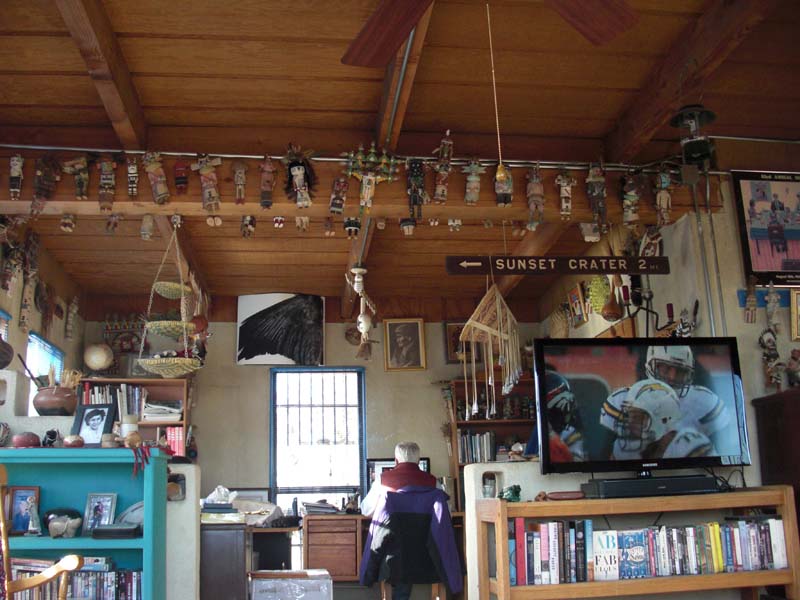
Pahaana, that’s the Hopi word for white Americans of European ancestry, white folks, and that’s me. Being one of the few Pahaanas married to a Hopi woman and practicing the ancient Hopi custom of living at your wife’s place means that I am a stranger living in a strange land. There are very few of us here. I always joke that the Hopis allow one Pahaana per Mesa and I am the token Pahaana for Second Mesa. I know of one other Pahaana at one of the villages at Third Mesa and there may be an opening at First Mesa as I write but I’m not sure. First Mesa is ten miles away.
As a native speaker of Pahanlavayi, the English language, I am sometimes asked to explain something written in English to a native speaker of Hopilavayi, the Hopi language. It could be something as easy as a single word that they have read or heard someone use or sometimes as complicated as the gist of a legal document. I’ve been doing this informally for years for friends, in-laws, and Hopi customers, but thanks to to Covid-19 this has been taken to a new level of urgency due to the Miracle of the Money. Stay with me here, while I explain that miracle.
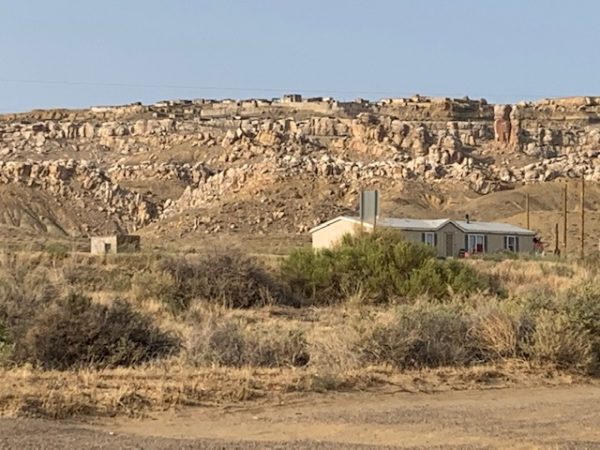
The Hopi Tribe recently received 88 million dollars in federal Covid relief funds and that’s a real miracle in and of itself. In typical Hopi Tribal Council fashion, the Council appointed a committee to determine what to do with this money and how it could be used to help the 12 Villages based on what the needs were. Facebook erupted with comments from Hopis along the lines of: everyone already knows what the needs are, why do they need a committee to study this, why don’t they just ask some regular Hopi people, I hope they figure it out before the deadline, etc. It even revived the old joke: How many Tribal Councilmen does it take to change a lightbulb? We don’t know, they’re still thinking about it.
Then the real miracle occurred. In addition to asking the villages to submit individual proposals for funding their own Covid programs, they decided that what the people really needed was money. In fact the Council decided that every Hopi 18 years old or older would receive $2000 plus a smaller amount for each child and there were even some funds for the 60 or so small Hopi-owned businesses on the Rez.
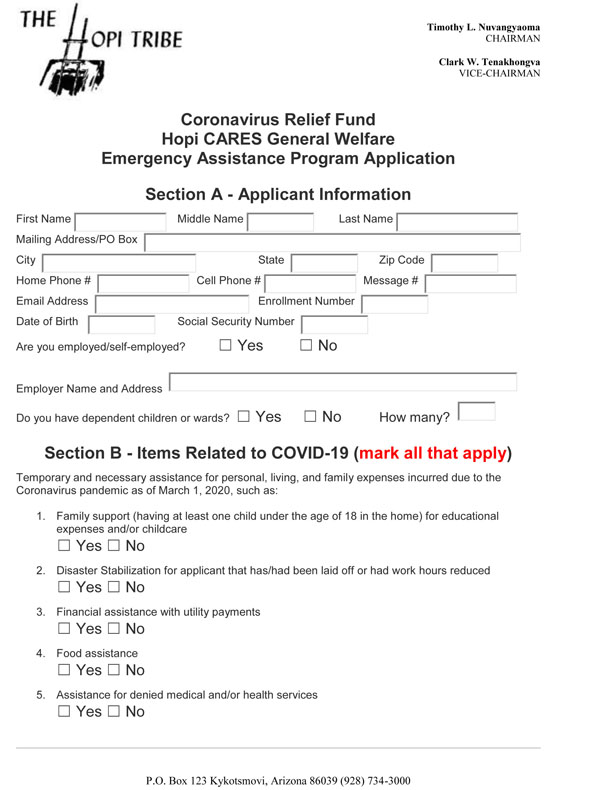
And the miracles kept on coming. Instead of a complicated application form of forty pages in triplicate needing multiple signatures, they forgot their B.I.A. training and came up with a simple one page that required name, Tribal Enrollment number, and a few boxes to check saying what they needed the funds for. They also hired a few regular Hopis instead of transferring some tribal bureaucrat lifers to do the intake.
Not every Hopi has a regular nine to five job and arts and craft sales make up a significant part of the Hopi Rez economy. Pretty soon silversmiths, basket makers, katsina doll makers and weavers began to come into the shop asking us to write them a note saying that we buy what they make and that business is slow.
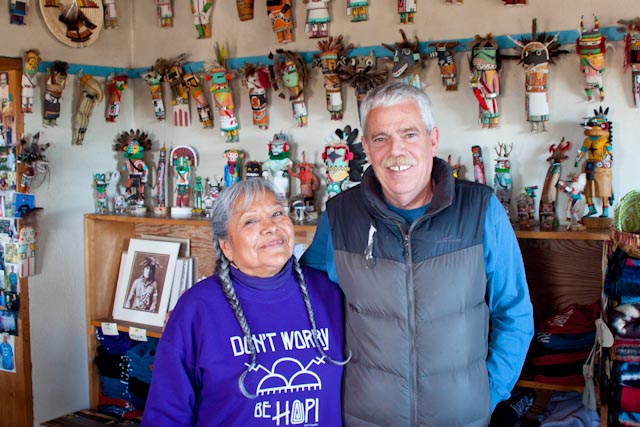
So I began to write notes saying that so and so was, say, a silversmith and that we bought everything they brought in and have not been able to buy their work due to Coronavirus since march 15th which was the date that everything closed down on the Rez. I then had my wife, Janice, sign the notes as the proprietor of the business, we stapled on a business card, and sent them on their way.
One day a woman who was a basket maker came into the shop asking for a note. She was wearing a mask and Janice didn’t recognize her right away. She asked the woman how she knew to come here and the woman replied that the Tribe sent her here.
When I said to the woman that I guess I must be the Tribe’s official designated Pahaana for notes, Janice replied, “Sometimes someone who is a native speaker and writer of Pahanlavayi does come in handy,” and we all laughed. I wrote her a note, and I continue to write notes.
Joseph Day was raised on the plains of Kansas, but he’s lived for decades on Second Mesa in Arizona’s Hopi Reservation. He and his wife Janice run the Tsakurshovi store on Second Mesa.
Click Here to Read More of Joseph Day’s “Dispatches from the Rez…”
To comment, scroll to the bottom of the page.
Zephyr Policy: REAL NAMES ONLY on Comments!
Don’t forget the Zephyr ads! All links are hot!


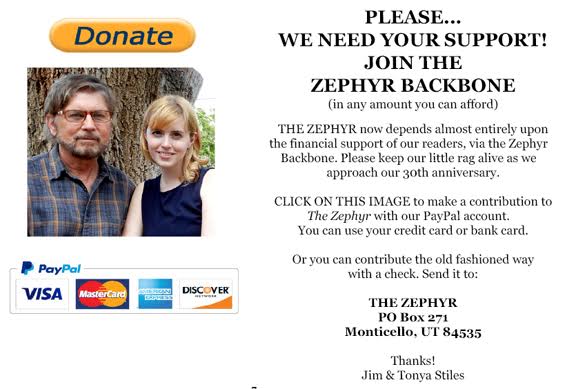



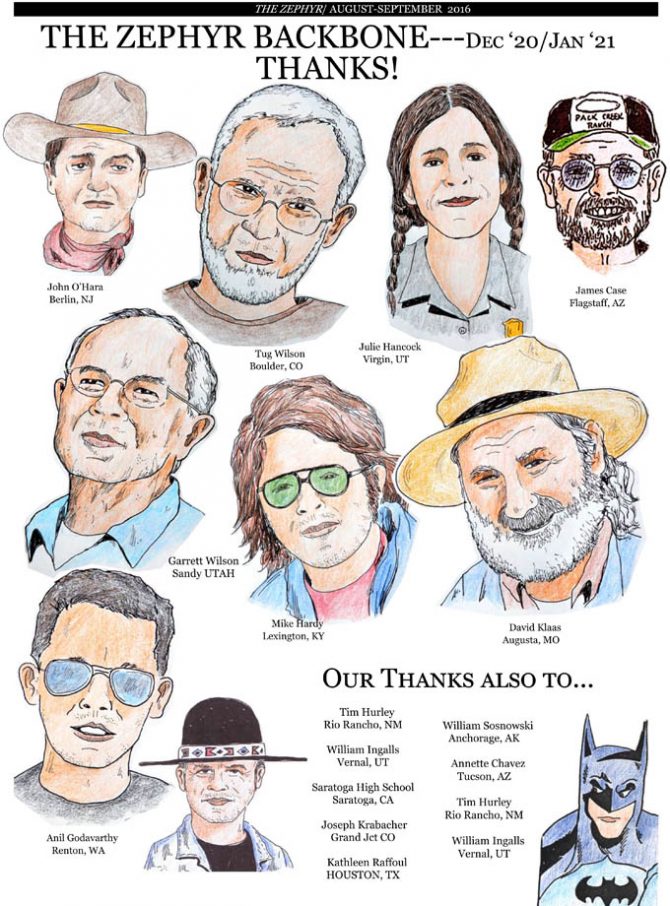
thanks for this, Mr. Day — good to know at least “in your neck of the woods (er, desert!)” it seems SOME THINGS are proceeding as they should !